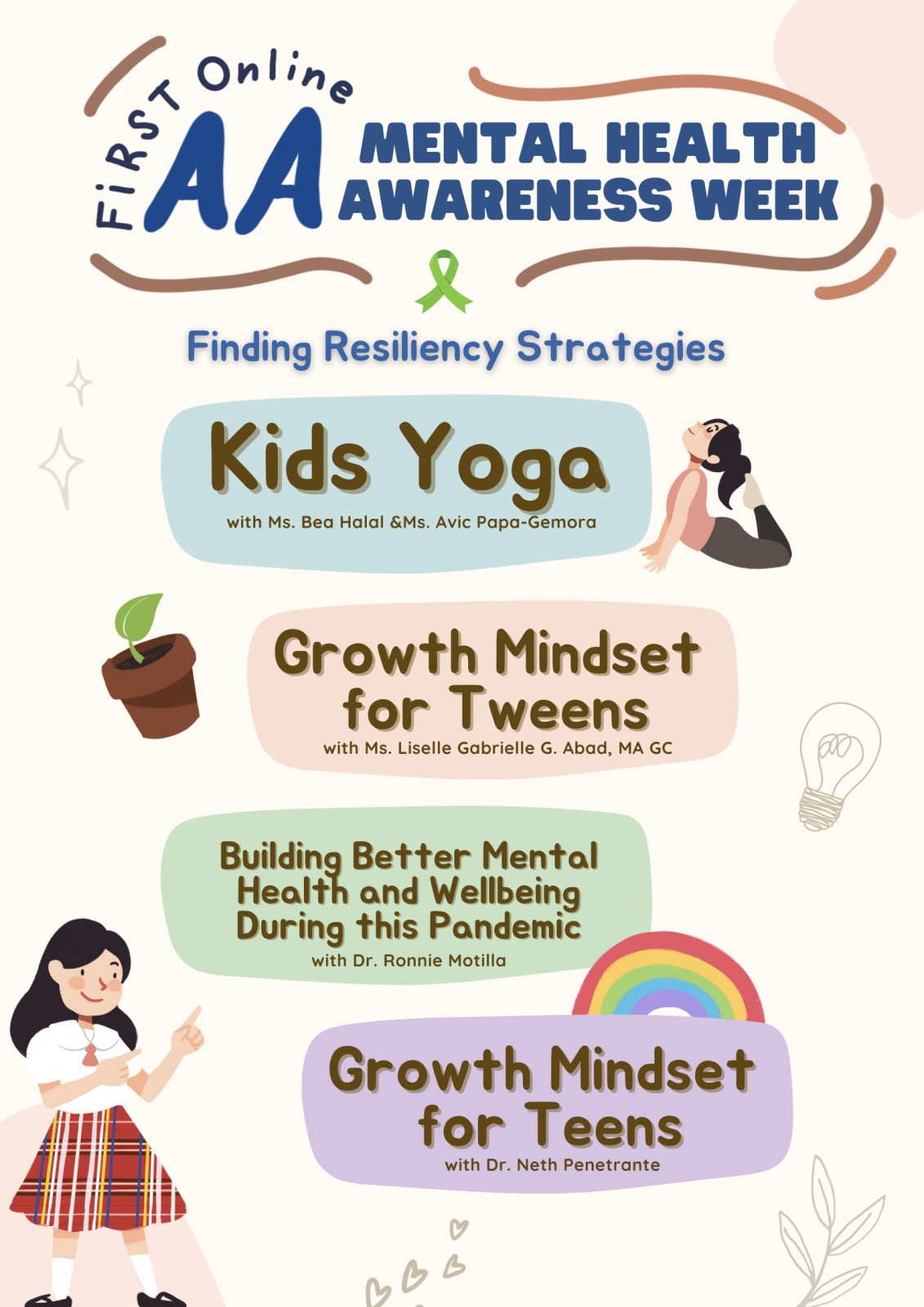



By Mika Sanchez, 7 - 3
January 5, 2022
If you have been anywhere on the internet at all, you have probably heard the term mental health at least once. Psychological, emotional, and social well-being is becoming a growing issue and people are writing books, organizing talks, and even creating whole blogs or YouTube channels for the purpose of exploring the topic.
Assumption Antipolo makes its contribution to the movement in the form of its annual Mental Health Awareness Week (MHAW), an event first held in SY 2017-2018.
In this week-long event organized by the Guidance Department held from October 11-15, 2021, students participate in activities and seminars meant to educate them and help them improve their mental well-being. This year’s online MHAW was the first of its kind and had the theme “Finding Resiliency Strategies.”
Through Microsoft Teams share boards, the students were given daily tasks to accomplish. On Maalagang Monday, the students wrote heartfelt thank-you messages to the people who contributed positively to their mental health. During Tahimik Tuesday, they came up with 30-minute calming activities. On Wais Wednesday, students shared an inspirational quote, then they set much-needed sleep schedules on Tulog Thursday, and finally, ate their favorite comfort food on Fiesta Friday!
The Guidance Department collaborated with speakers to prepare special activities in culmination of this week. Ms. Bea Halal and Ms. Avic Papa-Gemora gave a talk on Kids Yoga to the Preschool and Grades 1-3 students, while Ms. Liz gave a talk on Growth Mindset for Tweens to the Grades 4-6 students, and Dr. Neth Penetrante gave a talk on Growth Mindset for Teens to the JHS and SHS students.
Additionally, for the junior and senior high school students, clinical psychologist and college professor Dr. Ronald “Ronnie” A. Motilla gave a talk entitled Building Better Mental Health & Wellbeing During this Pandemic. During this seminar, the doctor gave 18 tools (which included breathing, sensory and psychological exercises, good relationships and a healthy lifestyle) to increase mental health and wellbeing during this pandemic. He emphasized that the students should not force themselves to use all 18 tools, as trying to do something that doesn’t come naturally to them could potentially stress them out and worsen their mental state, which is counterproductive.
He left the students an important message: treat yourself the way you treat others. That is, treat yourself with the same amount of kindness and compassion that you treat your loved ones. After all, saving the world begins with saving you.
